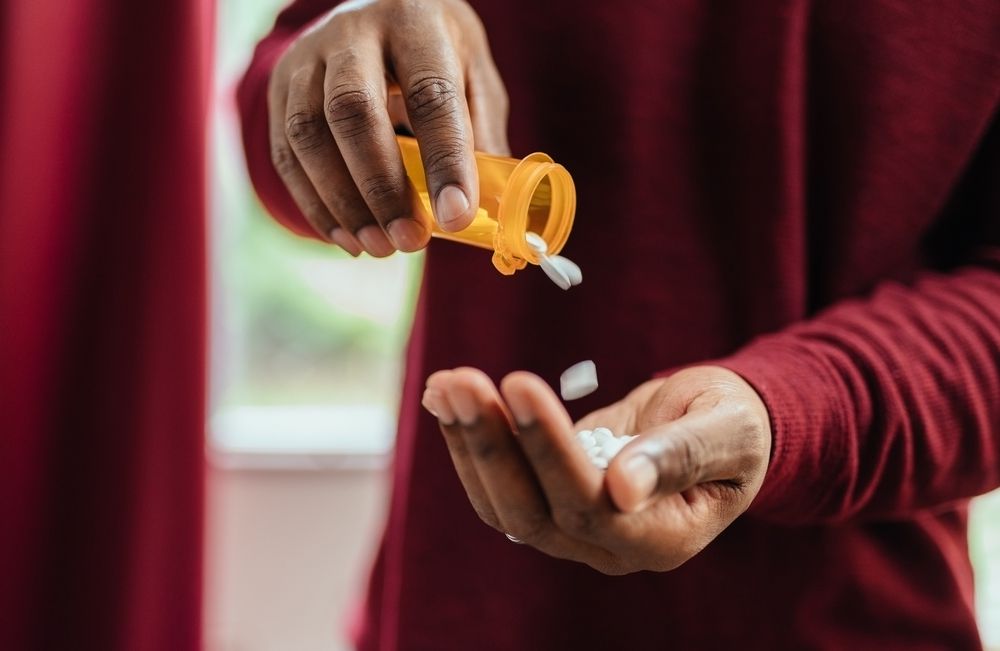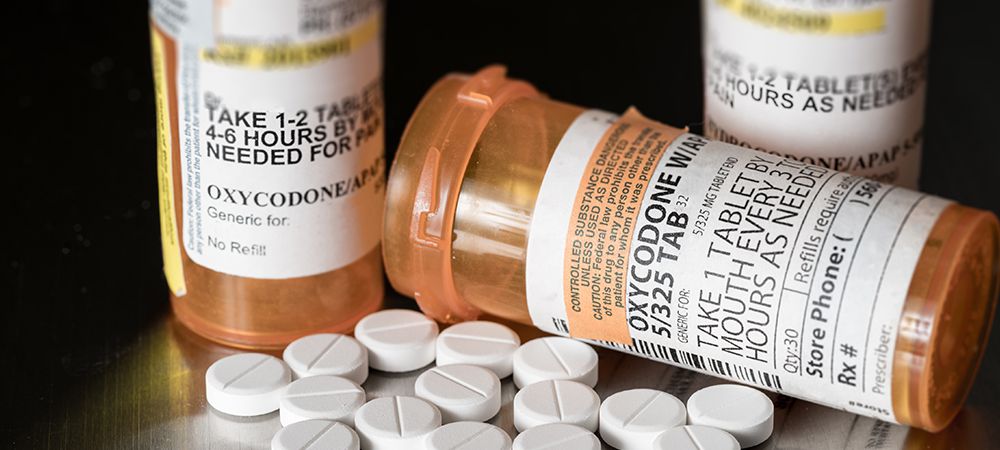
8 Myths about Opioid Addiction
There are various myths about opioid addictions going around. You’ll hear loads of things about what opioid addiction is all about. Guess what, most of them turn out to be more myths than fact. However, you can’t blame those you hear them from. They don’t know any better.
That’s why we’re here. In this post, we’ll examine eight popular myths about opioid addictions. We’ll also let you know what the facts are. This way, you can make better choices and stay informed.
What is Opioid Addiction?
Just before we get to the myths, you may be wondering what opioid addiction is. Well, it’s simple. It’s a situation where you get extremely dependent on opioids. In such circumstances, you may be unable to perform necessary brain functions without opioids in your body.
Now, you’re most likely wondering why opioid addiction is prevalent. Well, it’s simple. It’s thanks to the effect it has on your body.
Naturally, opioids are medications designed to help you with pain. However, they do this by creating an experience of euphoria. Usually, it’s this euphoria that gets people addicted to opioids.
The drill is simple. You enjoy the euphoria, and you want to keep experiencing it. As such, you keep using it. In turn, you’ll develop a habit of improper use that we call addiction.
So, in clear terms, opioid addiction occurs when you exhibit a compulsive tendency to use opioids. In such cases, you ignore the adverse effects it has on your body. Your focus becomes to experience this euphoria as many times as possible.
You should know that an opioid is a group of drugs rather than just one pill. As such, it ranges from a synthetic compound such as hydrocodone to natural prescription such as heroin. Other examples that you may come across include codeine, fentanyl, morphine, and oxycodone.
Also, you should know that opioid addiction isn’t final. Opioid addiction treatment can help those struggling with this kind of substance abuse problem. Typically, these treatments will include:
- Medication such as naltrexone, buprenorphine, and methadone
- Behavioural and counselling therapies
- Residential or hospital-based treatments
- Medication-assisted therapy (MAT) which involves a holistic approach to treatment
Myths About Opioid Addictions
Now that you know what opioid addiction is all about, let’s get straight up to the tale. Today there are multiple myths about opioid addiction. They are myths because you believe they are correct.
Unfortunately, they are quite far from reality. Even more, some of them expressly contradict opioid addiction facts.
Wondering what news you have heard but are false? Here are eight popular myths about opioid addictions that you should let go of.
Myth 1: Opioids are generally bad
If you’re someone that pays so much attention to the media, you’ll probably think opioids are all bad. Most headlines about opioids present it as a bad drug. You’ll see talks about addiction, death from an overdose, and investigations into opioid prescriptions.
Well, this is one of the most popular myths about opioid addictions. However, in reality, opioid isn’t always bad. Opioid has various benefits. It can prove useful in the management of acute pains such as cancer pain.
Myth 2: Opioid addiction is inevitable
Another myth you’ll find making waves is the idea that opioid addiction is unavoidable. You’ll most likely find yourself believing that once you use opioids, you’re getting addicted. So, you might even refuse a legitimate treatment all because it involves opioids.
Well, the fact is that taking opioids doesn’t mean you’ll get addicted. As long as it’s prescribed, your doctor will most likely take steps to avoid addiction.
They usually screen you to find out if you’re likely to get addicted. Also, they will monitor your use of opioids. For instance, doctors apply various addiction restrictive strategies such as:
- Urine tests
- Pill counts
- Regular office visits and thorough examination
So, using opioids for treatment doesn’t necessarily mean you’ll get addicted.
Myth 3: No need to worry about opioids addiction
Well, this is one of the most common myths about opioid addictions. You’ll hear people say that it’s coming from a doctor. So, you can’t possibly get addicted. This is because people believe that you only get addicted if you start using opioids with improper intention.
Well, in reality, that’s not the case. You can get addicted even if you begin with proper intentions. This is especially true of cases where there’s no proper monitoring and screening of opioid use.
Myth 4: More opioids brings better ease to chronic pain
Especially during your first use, high doses of opioids may bring more ease to pain. It can also improve functionality compared to when you take a lower dose. However, this doesn’t mean that long-term and high doses of opioids provide better ease of pain.
Unfortunately, this is just one of the many myths about opioid addictions. When you take high doses of opioids over a long period, it becomes less effective. Research even shows that it has the same level of effect as when you take lower doses.
So, yes, don’t keep taking high doses of opioids to reduce pain. Opioid addiction facts state that it doesn’t work better than a low dosage. You’re only getting more addicted.
Related article: 6 Warning Signs of Opioid Addiction
Myth 5: Opioids work best for pain control
There’s so much chatter about opioids that it becomes easy to assume people use it because it works best. Well, this is just one of the myths about opioid addictions. In reality, various other options work just as well and even better for pain control.
For instance, various non-medication options work effectively. Examples include:
- Exercise
- Psychological support
- Massage
- Structured physical therapies
- TENS units
- Other treatments like chiropractic care and acupuncture
Even more, other medications for pain include:
- Tylenol (Acetaminophen)
- Anticonvulsants
- Ibuprofen
- Over-the-counter drugs and topical prescription
- Antidepressants
Myth 6: Opioid addiction and dependence are similar
You’ll also hear reports in conversations about how opioid addiction and opioid dependence are similar. Well, it’s just one of the many myths about opioid addictions.
The fact is that both situations are different. Opioid dependence is more physical, and it involves situations where you depend on opioids to perform physical activities.
Usually, opioid addiction will lead to opioid dependence. In such cases, if you try to stop using opioid suddenly, then you’ll experience withdrawal symptoms. Precisely, you’ll be unable to perform regular physical activities.
On the other hand, opioid addiction is wider. It includes a wide range of other actions beyond opioid dependence. For instance, there’s the case of compulsive use. In such cases, you will continue to use opioids regardless of the negative consequences.
Myth 7: Only addicts experience opioid addiction
You’ll also find reports that you’re immune to opioid addiction as long as you don’t have a history of addiction. This is another of the many myths of opioid addiction.
No doubt, a history of addiction increases the likelihood of opioid addiction. However, that doesn’t mean you not having a history of addiction makes you immune.
Myths 8: Opioid drugs have a similar risk for addiction and abuse
One of the most popular myths about opioid addictions is that you face the same chance of addiction with all opioids. Well, that’s not the truth.
Like we stated earlier, there are various opioids from heroin to morphine to fentanyl. And according to opioid addiction facts, the risk of addiction differs.
This is because these opioids have different formulations. For example, some will work immediately and then fade off. On the other hand, some will take time and work long term. So, depending on the strength of the formulation, these opioids may pose different risks.
For example, fentanyl and hydromorphone are far stronger compared to morphine. As such, it’s easier to get addicted to fentanyl and hydromorphone compared to morphine.
Final Thoughts
Unfortunately, misinformation has far-reaching consequences, and that’s the case with opioid addiction. Some believe they are immune from opioid addictions (since they have no history of addiction). Well, as you now know, that’s not the case.
In this post, we discuss 8 myths about opioid addiction. With this information, you can make better choices. However, if you believe you have a problem with opioid addictions and need help, 1000 Islands Addiction Rehab & Treatment Centre is at your service. Check out our opioid addiction rehab in the USA and Canada.
Contact us today to speak to an expert about your opioid addiction issue.
Related article: The Timeline for Opioid Addiction Treatment






